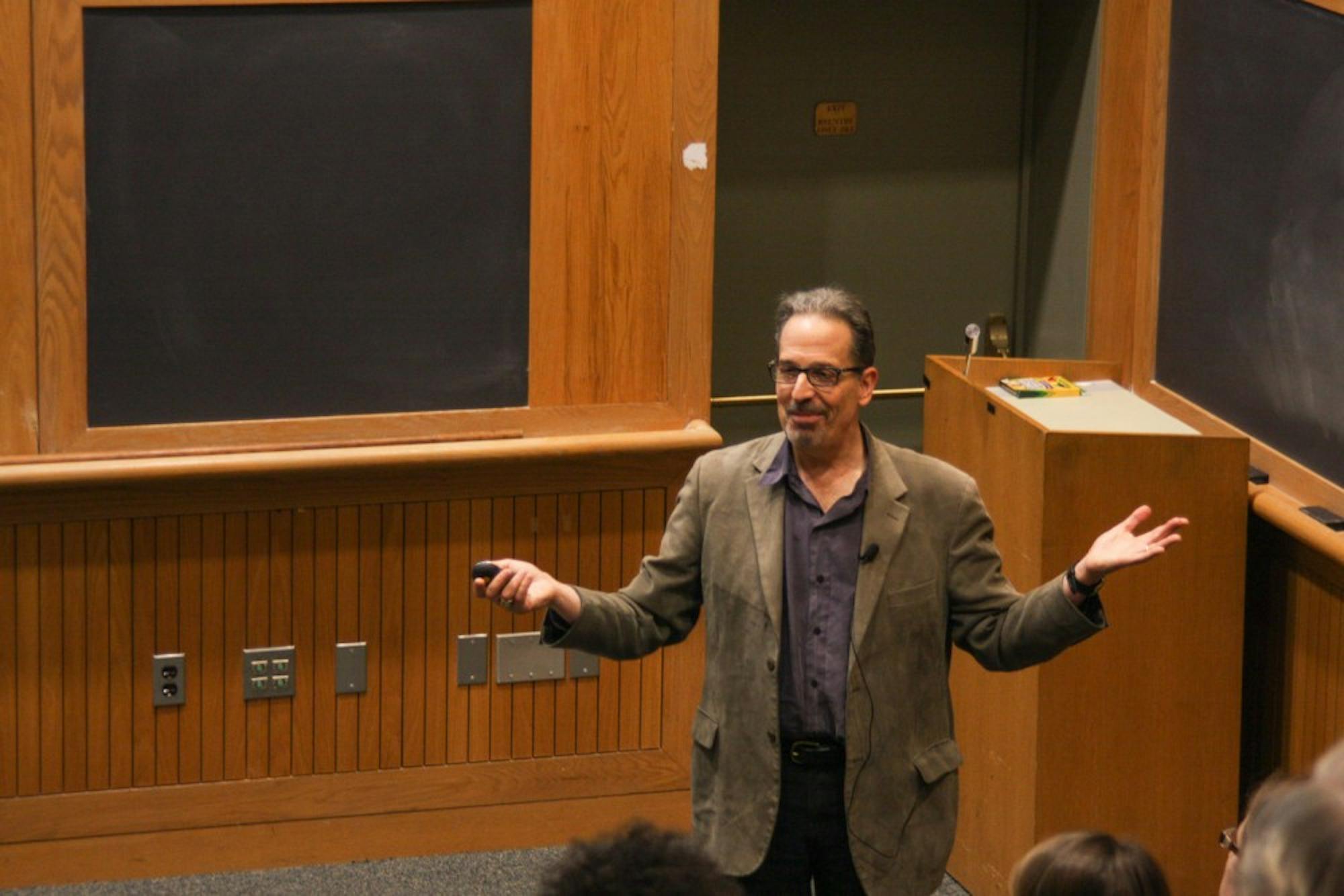While a PhD in computer science and a diploma in calligraphy and bookbinding may seem like an unconventional pairing, University of Washington professor David Levy ’71 discussed how the juxtaposition of the two disciplines can demonstrate the value of contemplation in a fast-paced world in a lecture Thursday evening.
Levy encouraged students to search for a contemplative balance in a world marked by acceleration, overload, fragmentation and distraction, and to find ways to use modern digital tools to promote such a balance.
“We have arguably the most remarkable tools for scholarship and learning the world has ever known,” Levy said. “How is it that we have less time to think than ever before?”
Levy witnessed the beginnings of the modern technological age at a conference in California on digital typography in 1983, where the audience consisted of historians, calligraphers and computer scientists.
“At that moment, I understood that the computer was the next major writing tool,” Levy said. “That’s the moment when I learned this is how I bring these worlds together for myself.”
Society continues to value industrial age efficiency and the acceleration of production and consumption, he said. The industrial age’s philosophy in turn nurtures an educational system that resembles a factory rather than a space for thoughtful engagement.
“Thinking itself is a slow-time activity,” Levy said. “If you’re thinking or contemplating something serious, you need an extensive amount of time. Thinking simply does not fit into a production model. Thinking, fundamentally, is not something you make more efficient.”
Levy teaches college students to be aware of the role technology plays in their lives and create a dialogue about their relationship with technology.
Through his courses at the University of Washington, Levy said he found students often feel they spend too much time online and want to slow down.
“There’s an assumption that because you’ve grown up with these technologies that you don’t have any concerns for these technologies,” he said. “Let’s not assume that the older generation knows all the answers. We have to create a dialogue.”
While students increasingly use laptops in the classroom to increase efficiency, they also create distractions.
“We live in a time where more and more people are realizing that it’s very easy to be distracted,” he said. “We are connected in one sense through texting and Facebook, but we are also in another sense disconnected with ourselves and from our bodies and are having difficulty figuring out how to use these technologies in the most helpful ways.”
To address distraction, Levy studies methods of tapping into a contemplative state, such as the meditative practices of Buddhism as well as meditating and breathing exercises found in the ancient Greek education system.
Attendees appreciated Levy’s critique of modern life.
“Being creative and doing stuff that we consider in today’s modern society as ‘wasteful time’ is what we need,” said Cynthia Madu ’15, who attended the lecture and saw Levy in her education class. “Today’s educational system considers it wasteful, but we need to understand who we are outside of this machine.”
Madu disconnects from technology and connects with herself every Friday through knitting. She said the repetitive rhythm of moving her hands lets her mind focus solely on the task at hand without distractions or anxieties.
“Waste a little time,” she said. “Stop and smell the roses. The world’s not going to end in that 30 minute section you use for yourself.”
The lecture, titled “No Time to Think,” was sponsored by the Rockefeller Center, the Dartmouth Center for the Advancement of Learning, the Institute for Security, Technology and Society and the Tucker Foundation.




